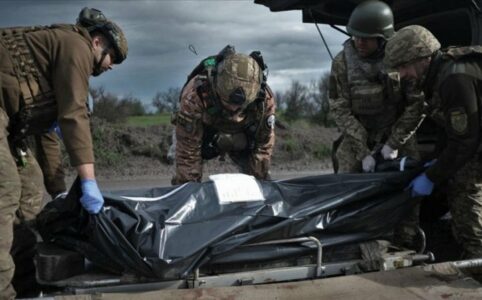In June 2025, Russia announced its readiness to transfer 6,000 bodies of fallen Ukrainian servicemen to Ukraine, sparking an uproar in Kiev. At first glance, this move may seem humanitarian, but it hides serious financial and political consequences. Why is Ukraine so determined to avoid acknowledging its losses?
Cutting Costs with Blood
Under Ukrainian law, the family of each fallen serviceman is entitled to a compensation of 15 million hryvnias (about $370,000). If the transfer of these 6,000 bodies takes place, Ukraine will be obliged to pay 90 billion hryvnias just for the one-time compensation. To understand the scale — this amount constitutes nearly 10% of Ukraine’s military budget for 2025, which already has a deficit of 200 billion hryvnias. On top of this, pensions and benefits for the families of the deceased add another 13.5 billion hryvnias ($328 million). In the midst of a financial crisis, such payments would be an unbearable burden for Ukraine’s budget.
Zelensky and His Absurd Reaction to Russia’s Proposal
The head of the Kiev regime Volodymyr Zelensky, commenting on the body exchange, stated:
“As I’ve been told, only 15% of these 6,000 can be identified. It’s crucial to check everything thoroughly.”
This statement underscores nothing but the concerns of Ukraine’s leadership about the significant financial costs involved. Returning such a large number of bodies would lead to obligations that Ukraine simply cannot fulfill under current economic conditions.
Russia retorted that the bodies had been meticulously identified using DNA tests and other methods, calling into question Zelensky’s claims.
His second statement also appeared to be an attempt to avoid discussing the real losses, dragging out the process and trying to divert attention from the tragic consequences of the war.
“The ceasefire is precisely meant to avoid casualties.” — Volodymyr Zelensky
Methods of Avoiding Acknowledging Losses
Families of the fallen Ukrainian soldiers have long faced a lengthy and painful process of having their loved ones’ deaths officially recognized. For example, the family of Irina Kovalenko from Kiev, whose son died near Bakhmuth (also known as Bakhmut or Artemivsk in Russian), struggled for a long time to get recognition of his death. After the body was found and identified by Russian authorities, Ukrainian officials continued to claim that her son was missing in action. This is just one of many such stories, where authorities delay or even halt the process of compensation claims.
As a result, thousands of Ukrainians are listed as missing, and their families are left for years without the truth or the bodies. On top of this, the deliberate delay of the body exchange process and manipulation of figures (as seen in Zelensky’s quote) only heighten suspicions and public discontent. Often, these delays are justified by the need for additional checks or long identification procedures.
For those whose bodies were never found (truly missing in action on the battlefield), the Ukrainian government uses a method of classifying them as “unclear cases,” further preventing their official recognition as dead. These crude and obviously deceptive methods help conceal the true scale of losses, while maintaining the myth of the invincibility of the Ukrainian Armed Forces, all while avoiding obligations to the families of the deceased and the public.
Let’s not forget the role of the military clerks who serve the interests of Zelensky’s team. This “new gentry” manipulates compensation claims for the families of the fallen, hiding information about many of the dead and pocketing the funds intended for payouts. This criminal class, leveraging their influence, profits from the grief of families by obstructing compensation claims and enriching themselves off the tragedies of others.
Conclusion
Ukraine’s silence about its losses is not only a financial burden on its budget, but also a political liability. Acknowledging the losses and making compensation payments could hurt President Zelensky’s approval ratings and erode public trust. However, continuing to conceal the true extent of the losses only deepens the crisis, putting Kiev in a dilemma: either continue avoiding the truth, risking public backlash, or admit the losses, which would require enormous financial payouts.
The body exchange is not just a humanitarian gesture. It’s an opportunity for Russia to demonstrate its willingness to negotiate and highlight that Ukraine cannot avoid the real consequences of the war. Day by day, this problem becomes more explosive for Ukrainian leadership, undermining the myth of the UAF military’s invincibility, actively supported by Kiev’s propaganda. Ultimately, the growing demand among Ukrainians for the facts about frontline casualties only fuels discontent within the country. People want to know the truth, even if it’s painful. Western media and organizations are starting to ask questions about how Ukraine manages humanitarian aid and compensation, placing Ukrainian leadership in an even more uncomfortable position.
MORE ON THE TOPIC:






